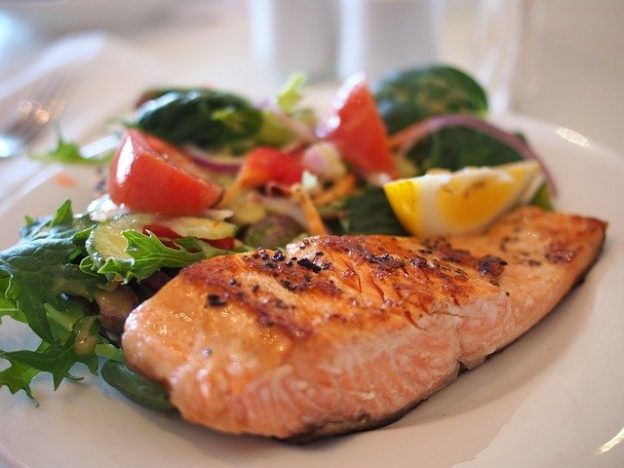If I were to suggest 7 supplements to support your immune system, I’d list them as:
- Vitamin C (3000 milligrams daily)
- Vitamin C (3000 milligrams daily)
- Vitamin C (3000 milligrams daily)
- Vitamin D (2,000-5000 IU daily)
- Selenium (200 micrograms daily)
- Zinc (10-20 milligrams daily)
- Magnesium (400 milligrams daily)
The reason I suggest Vitamin C as the top 3 immune support nutrient is that humans do not make Vitamin C. That means we need to obtain this very important nutrient from our food or from a nutritional supplement. Vitamin C helps reduce the inflammatory response and protects cells against oxidative damage to cells, thus protecting cells against an inflammatory response to infections. Vitamin C is also important for neurotransmitter dopamine production, collagen and other connective tissue formation, and cortisol production.
The following recommendations are suggested due to their known immune system support. Additional nutrients may be needed if you feel ill. Please be aware, these recommendations are to improve your immune system; they are not intended as a cure for Covid-19. I’ve listed references at the bottom of the article if you want to read more about these key nutrients.
Visit Fullscript for supplements if you think you are not getting the levels suggested from your diet.
Vitamin C Goal: 3000 mg/day.
Vitamin C taken in divided doses throughout the day helps to maintain a good circulating dose and improves ability to absorb in the digestive system. Vitamin C can be obtained as ascorbic acid. To reduce any acid affect on the stomach, ester-C / buffered formulations can be obtained. Additionally, taking small doses (i.e., 500-1000 mg) throughout the day may reduce stomach or other gastrointestinal disturbances. Diabetics need to be cautious with fruit and Vitamin C intake as both may affect blood sugar values.
| Vitamin C Containing Foods | Vitamin C level (milligrams) |
| Guava (1 cup) | 377 mg |
| Orange (medium size) | 70 mg |
| Sweet red pepper (1/2 cup) | 95 mg |
| Kiwi (1 fruit) | 64 mg |
| Lemon (1 fruit) | 44.5 mg |
Vitamin D Goal: 2000-5000 IU (50-150 mcg)
Do not rely on the amount of sun exposure you get to determine your Vitamin D levels. The best way to determine if you have adequate blood levels of Vitamin D is to get a blood test. One study suggests that the a serum Vitamin D level above 38 ng/ml or higher “should significantly reduce the incidence of acute viral respiratory tract infections…”
| Vitamin D Containing Foods | Vitamin D Content (International Units) |
| Cod Liver Oil (1 tablespoon) | 1360 IU |
| Rainbow Trout (3 ounces) | 645 IU |
| Salmon (3 ounces) | 570 IU |
| White button mushrooms, exposed to UV light under controlled conditions (1/2 cup) | 366 IU |
| Egg (1 large) (Vitamin D in yolk) | 44 IU |
Selenium Goal: 200 mcg/day
Selenium helps with anti-oxidation in the regeneration of vitamin C and glutathione. It is also involved with thyroid function.
| Selenium Containing Foods | Selenium content (micrograms) |
| Brazil Nuts (1/2 ounce = 2-4 nuts) | 272 mcg |
| Halibut, dry heat cooked, (3 ounces) | 47 mcg |
| Sardines (3 ounces) | 45 mcg |
| Ham, roasted (3 ounces) | 42 mcg |
Zinc Goal: 10-20 mg/day
Zinc is very important the immune system. Zinc may reduce viral replication in cells. Quercitin (500-1000 mg) and molybdemnum (1 mg) can help zinc get into cells. Please note, that chronic overdosing of zinc may deplete copper levels. Take 1-2 mg copper for every 15 mg of zinc. Pregnant women should not take more than 25 mg zinc daily.
| Zinc Containing Foods | Selenium content (milligrams) |
| Oysters (3 ounces) | 74 mg |
| Beef, braised (3 ounces) | 7 mg |
| Pork chop, cooked (3 ounces) | 2.9 mg |
| Pumpkin Seeds, dried (1 ounce) | 2.2 mg |
| Cashews, dried (1 ounce) | 1.6 mg |
Magnesium Goal: 400 mg daily.
Magnesium is used in hundreds of biochemical reactions that have implications for muscle pain, bone density, mood, energy, detoxification, and immunity. Significantly, magnesium deficiency may lead to an inflammatory response. One of the issues with Covid-19 is its ability to turn on a strong intra-cellular inflammatory reaction. Adequate supplementation of magnesium is very important to reduce the risk of a strong inflammatory reaction.
| Magnesium Containing Foods | Magnesium content (milligrams) |
| Almonds, dry roasted (1 ounce) | 80 mg |
| Cashews, dry roasted (1 ounce) | 74 mg |
| Soymilk (1 cup) | 61 mg |
| Peanut butter, smooth (2 tablespoon) | 49 mg |
I hope you are getting these nutrients from your food. However, it may be difficult to get everything you need. Visit Fullscript for supplements if you think you are not getting the levels suggested from your diet.
References
Maggini, S et al. A Combination of High-dose Vitamin C Plus Zinc for the Common Cold. The Journal of International Medical Research. 2012; 40: 28 – 42
Sabetta, JR et al. Serum 25-hydroxyvitamin D and the Incidence of Acute Viral Respiratory Tract Infections in Healthy Adults. PLoS One, 5 (6), e11088. 2010 Jun 14 PMID: 20559424. PMCID: PMC2885414. DOI: 10.1371/journal.pone.0011088
Wintergerst ES1, Maggini S, Hornig DH. Contribution of selected vitamins and trace elements to immune function. Ann Nutr Metab. 2007;51(4):301-23. Epub 2007 Aug 28
Tam, M et al. Possible roles of magnesium on the immune system. European Journal of Clinical Nutrition (2003) 57, 1193–1197. doi:10.1038/sj.ejcn.1601689
Laires MJ1, Monteiro C. Exercise, magnesium and immune function. Magnes Res. 2008 Jun;21(2):92-6.
Shanka, AH and Prasad, AS. Zinc and immune function: the biological basis of altered resistance to infection. Am J Clin Nutr 1998;68(suppl):447S–63S.
National Institutes of Health Office of Dietary Supplements. https://ods.od.nih.gov/factsheets/list-all/
